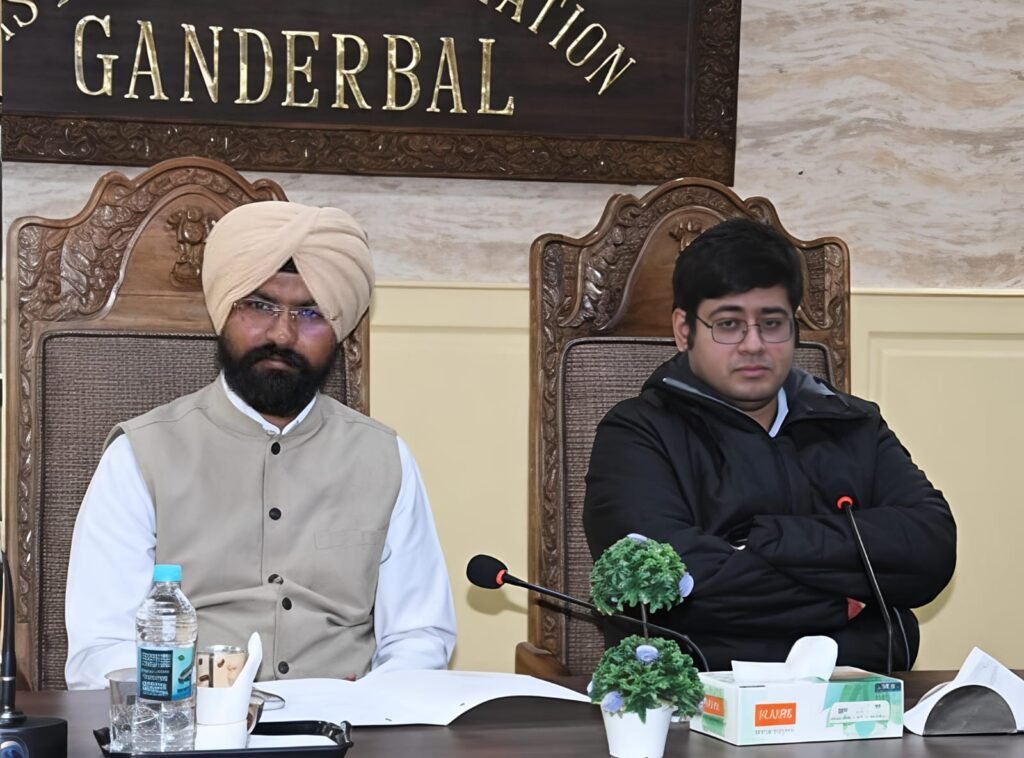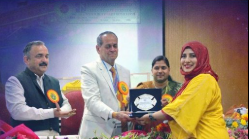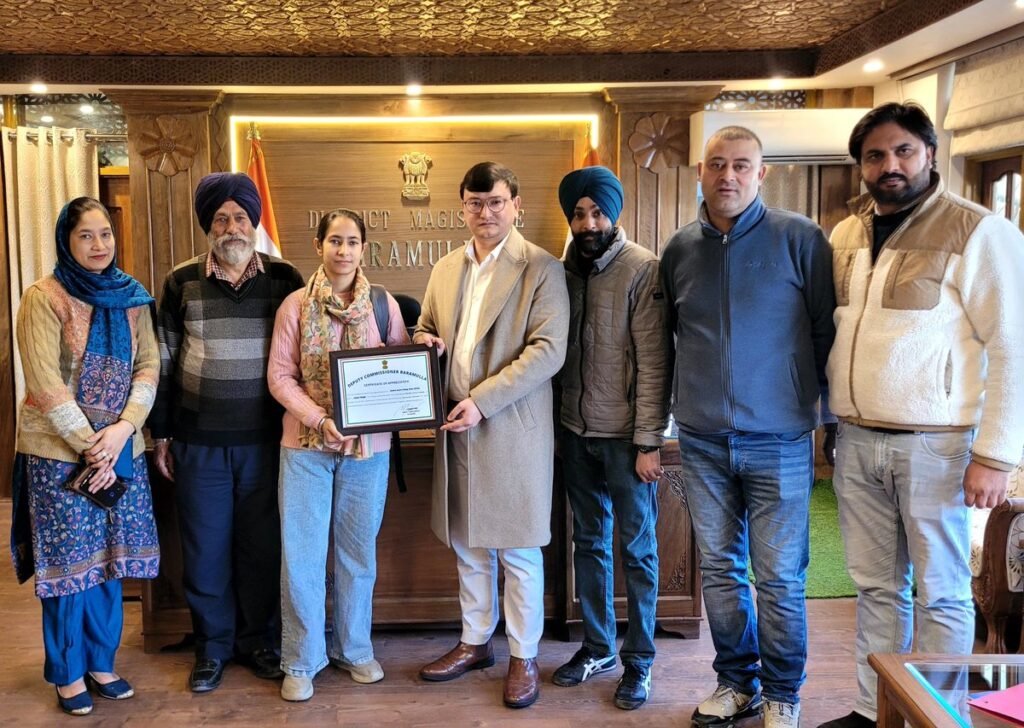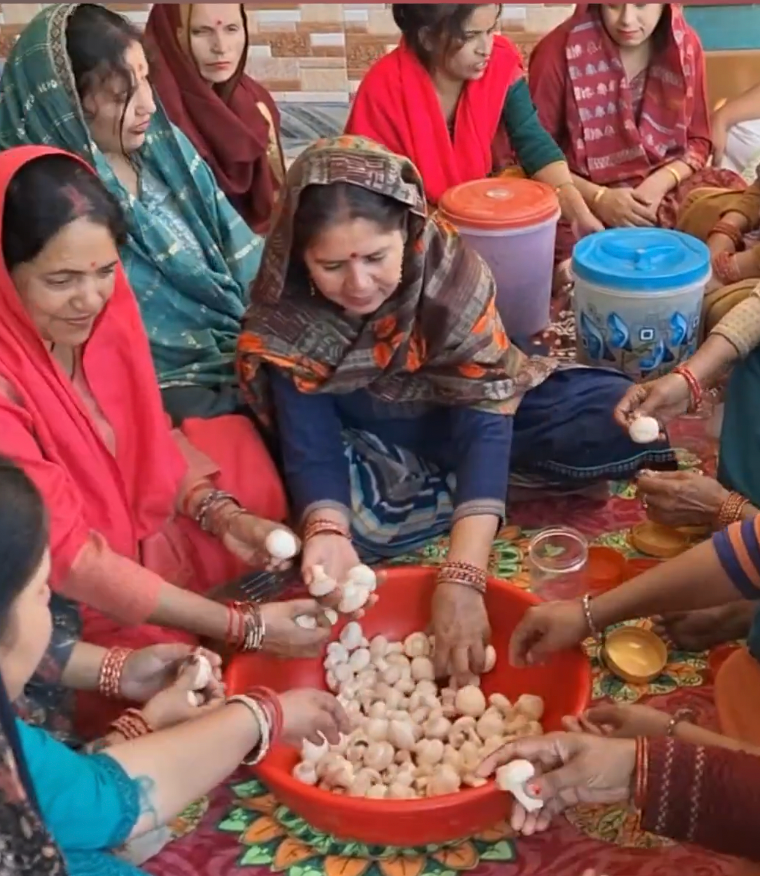A Women-Led Venture Redefining Rural Entrepreneurship
The Kashmir startup ecosystem is witnessing a quiet yet powerful transformation, led by young innovators turning traditional livelihoods into scalable businesses. In a region often challenged by limited resources and socio-economic barriers, one young woman’s journey from family beekeeping to a full-fledged honey enterprise showcases how government schemes, modern techniques, and sheer determination can create sustainable success. This real-life case study not only highlights the potential of rural entrepreneurship but also offers a blueprint for others—especially women—who dream of building something of their own in Jammu & Kashmir
In the remote town of Balhama, on the outskirts of Srinagar, a quiet revolution is unfolding—one that smells sweet, quite literally.
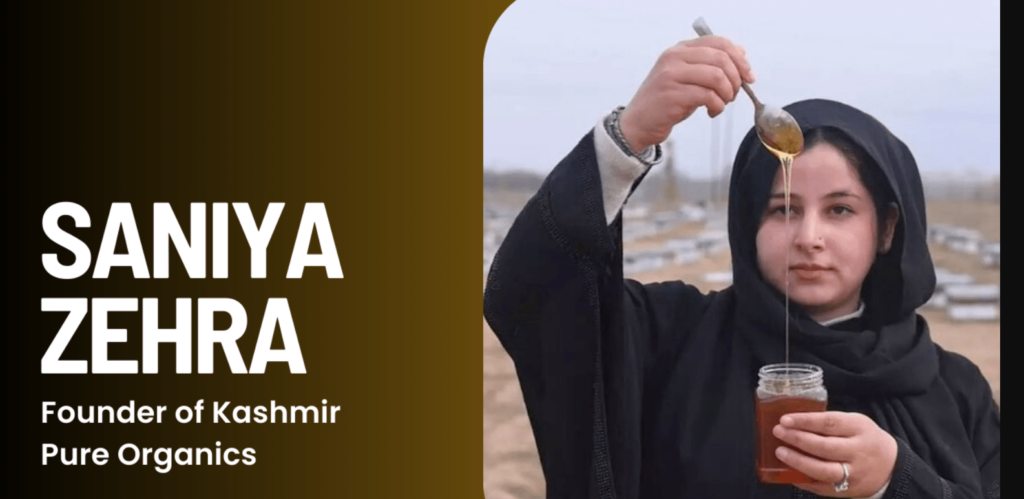
At just 20, a young woman has not only revived her family’s beekeeping tradition but turned it into a thriving business, embodying the spirit of the growing Kashmir startup ecosystem. With a unique blend of tradition, innovation, and sustainability, she has carved a niche in a field where women rarely step in, let alone lead.
A Family Tradition Reimagined
Beekeeping wasn’t new to her. Childhood memories are wrapped in the hum of honeyurial instincts began to stir.bees and the scent of fresh honeycombs. Her father managed 180 colonies and frequently travelled to Punjab and Rajasthan to keep the bees alive during Kashmir’s harsh winters.
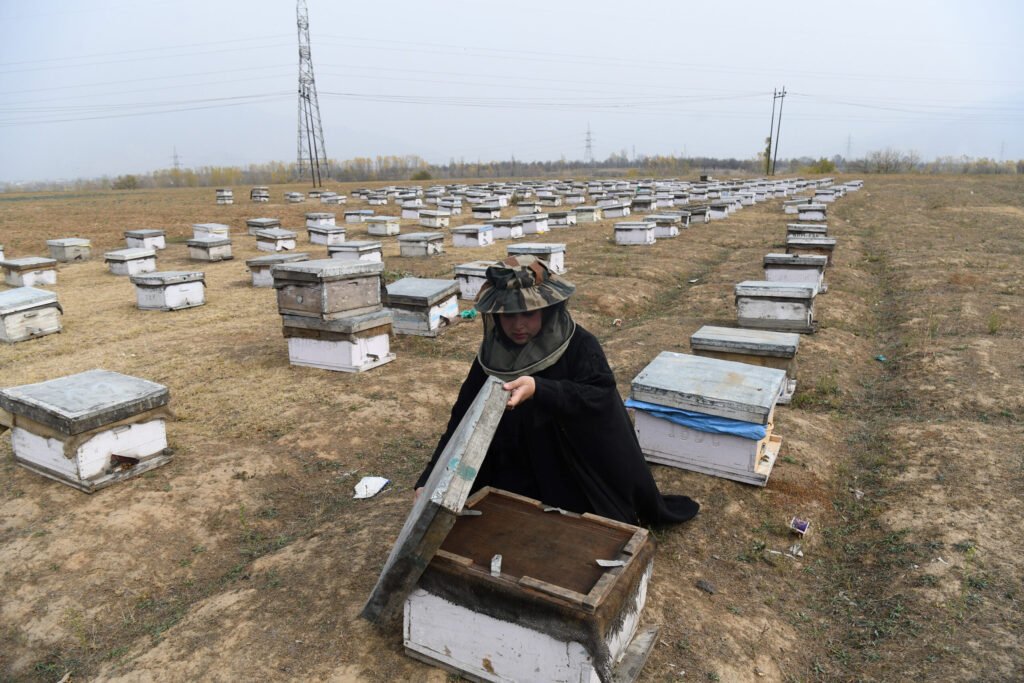
It was during these trips that she began to notice the gaps in the value chain—the difference between what bulk buyers paid and the price honey fetched in retail markets. Her entreprene
The Leap of Faith
Despite enrolling in a diploma program under family pressure, her passion for beekeeping never wavered. Breaking stereotypes and societal expectations, she returned to her roots with a renewed vision. In 2022, she formally started her venture with an investment of Rs 1.5 lakh, purchasing 35 bee colonies.

Her timing was opportune: the Jammu and Kashmir government had launched the Holistic Agriculture Development Program (HADP), offering subsidies and training support. With an additional Rs 1.2 lakh subsidy, she expanded to over 650 colonies.
Scaling with Innovation
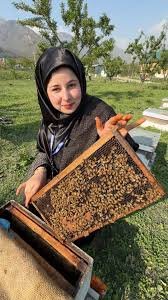
She adopted migratory beekeeping—a method that involves moving bee colonies to different locations based on flower blooming cycles. In winter, the bees are transported to Rajasthan’s mustard fields.By March, they are moved to mango and litchi orchards in Punjab. Come June, they return to Kashmir, moving through Pulwama, Sangri, Sonamarg, and Lethapora in search of the purest nectar. This seasonal migration has helped her achieve a remarkable yield of 5,500 kilograms of honey per season.
Launching ‘Kashmir Pure Organics’
Her next big move was launching her brand, Kashmir Pure Organics. The range includes Acacia honey (Rs 1200/kg), multifloral (Rs 1400/kg), monofloral (Rs 1000/kg), wild honey (Rs 1200/kg), and honeycomb (Rs 1600/kg). But her innovation doesn’t stop at honey. She also crafts handmade soaps, cosmetics, and wellness products from royal jelly and bee pollen, ensuring zero waste from her operations.
Support Systems and Government Backing
Her success has been supported by a framework of government schemes designed to foster agri-tech and rural entrepreneurship. Apart from HADP, she has tapped into the National Beekeeping and Honey Mission (NBHM) and the Mission for Integrated Development of Horticulture (MIDH), which provide training, infrastructure aid, and branding assistance.
| Scheme | Benefit | Target Group | |
|---|---|---|---|
| HADP | Infrastructure subsidy up to 80% | J&K agri-startups | |
| NBHM | Training, branding, certificationon | Beekeepers & women entrepreneurs | |
| MIDH | Pollination support & market access | Horticulture-linked startups |
How to Start a Beekeeping Startup in the Kashmir Startup Ecosystem
For aspiring entrepreneurs, especially women in Jammu & Kashmir, starting a venture in the Kashmir startup ecosystem can be both empowering and viable. Here are key steps to get started:
- Gain Basic Training: Enroll in short-term courses offered by the Department of Agriculture, KVIC, or schemes like NBHM that offer certified beekeeping training.
- Start Small: Begin with 20–50 colonies. Use local materials to build basic infrastructure and learn to manage operations manually.
- Apply for Subsidies: Register with the Jammu & Kashmir Agriculture Department under HADP and NBHM. Most schemes offer 50–80% subsidy on startup costs.
- Formulate a Brand: Start packaging honey with a local identity. Leverage digital platforms like Instagram, WhatsApp, or Shopify to sell.
- Explore Value-Added Products: Include products like beeswax candles, soaps, or cosmetic items to diversify income.
- Collaborate with Farmers: For migratory beekeeping, partner with orchard owners and farms in Punjab or Rajasthan.
Starting such a business is not capital-intensive, and with government aid, women in even the remotest villages can begin their entrepreneurial journey.
A Role Model for Rural Innovation
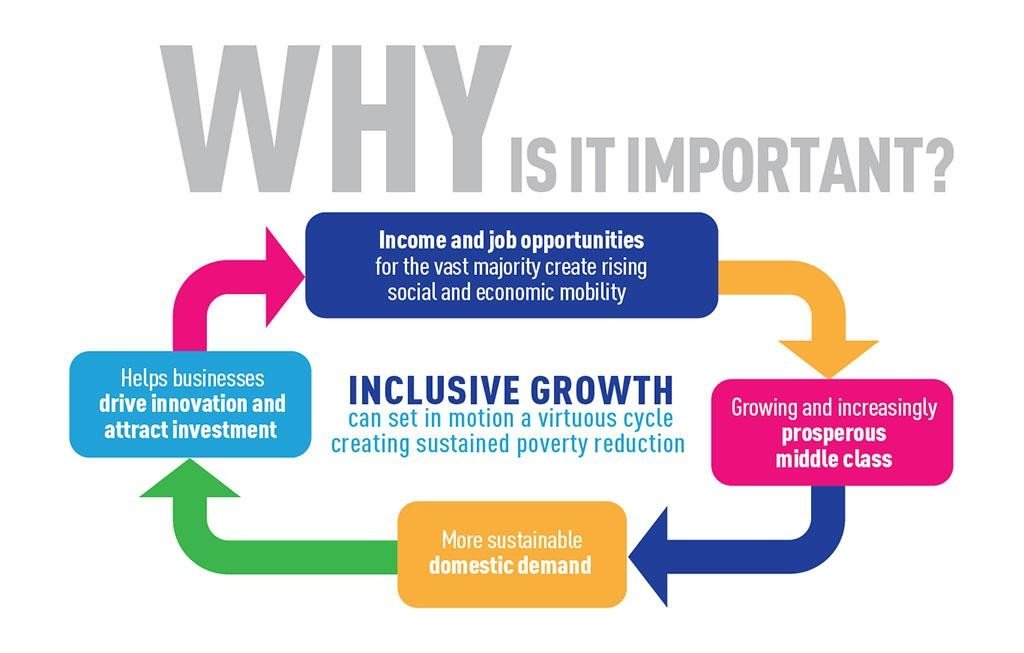
In a region where women entrepreneurs still face resistance, her story is not just inspiring—it’s groundbreaking. Her monthly income now touches Rs 2 lakh, and she has generated employment for local youth and women in her area. Her journey is increasingly being cited in local entrepreneurship workshops as a case study in innovation and resilience.
What Lies Ahead for Women in the Kashmir Startup Ecosystem
She is now working on expanding her processing capacity and reaching wider markets through online platforms. The ultimate goal? To build a cooperative model that allows other rural women in Kashmir to benefit from beekeeping and natural product enterprises.
In the buzz surrounding startups and sustainability, this is not just about producing honey—it’s about producing hope. A powerful example of what happens when passion meets purpose, and when government support meets grassroots innovation.






